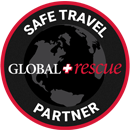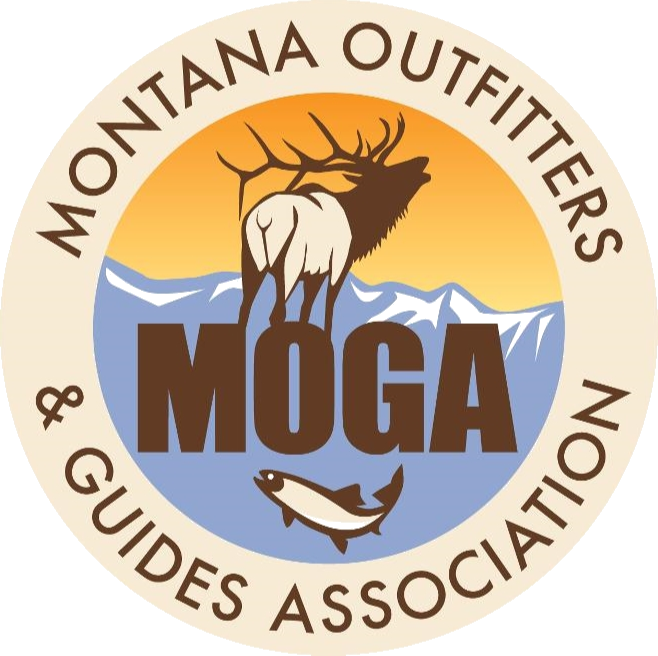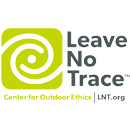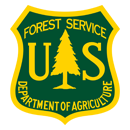
Morgan’s Internship Experience with MARS Wildlife Rescue Centre
by Ali Morgan, a staff member and guide with Dropstone Outfitting
MARS Wildlife Rescue Center – Vancouver Island, British Columbia
Many people right now are experiencing something that I have some familiarity with: Being at home with arguably too much time available. In the past, for me, it has been time between seasonal jobs and much more of a choice compared to the current shelter-at-home requirements. Right now I have a bit of time to write this blog because I’m self-quarantining at my home in Choteau after returning from an internship at MARS Wildlife Rescue on Vancouver Island, British Columbia. My goal there was to do something different, something where I could learn and experience something completely new. MARS certainly delivered!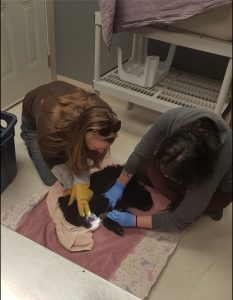
MARS has an incredible visitor center that educates the public about what they do and how everyday people can make a difference towards ensuring the safety of their local wildlife. At the MARS hospital, where I worked, we rescued injured or orphaned wildlife, with the mission of rehabilitating and returning to the wild as quickly as possible. We took in a variety of critters while I was there from raccoons, otters, squirrels and even a baby bear. The majority of MARS’s patients, however, were birds. Most smaller had flown into windows, been attacked by domestic animals, or poisoned by bird feeders that are not kept clean enough. But by far the majority of birds at MARS, and what MARs is most known for is eagles.
While it can be hard to describe a typical day in the hospital at MARS, in general we meet in the morning and go over all the patients, decide who will be assigned where, and begin. Sometimes there were 10 of us between staff, interns, and volunteers, other days just 3. Some days we took care of our patients and were able to help work crews with landscaping projects or other back logged needs, while other days we went out on several rescues, or released some of our healthy critters. Often it stretched out to be a very long day. One thing is sure though, there is always something to do at MARS. It may be anything from dishes, laundry, hauling pea gravel, scraping eagle poo, organizing freezers, or the endless preparations for baby season. You may think scraping poo does not sound like much fun, but when you get rewarded by being so close to these incredible animals, seeing them everyday, and eventually releasing them back into the wild, it is all worth it.
We saw a fair amount of owls coming in after getting hit by cars, and until I came to MARS I never realized how I had personally put owls in danger by something I think most of us do pretty frequently. If you are familiar with owl anatomy, then you know that they can not actually move their eyes at all. They are in a fixed position in their skull, which is why they have adapted to having 12 vertebrae and can turn their heads so far around. Because of this, when they identify prey, a mouse for example, they lock onto that target without seeing anything in their periphery. So when you innocently throw even biodegradable trash out your car window and think it will just disappear, you are actually endangering owls. Mice are likely to find that garbage, and it may so happen that an owl finds that mouse. Once he is in motion there is no way the owl will even see the car zooming towards him.
Many of the eagles at MARS come in for lead poisoning, getting hit by a car, or a combination of both. It can be heartbreaking to see when they first arrive but the upshot is that we were able to re-release most of the birds after treatment. It’s a completely preventable issue that, with education we may be able to solve. And it’s not just a Canadian problem, it is very much a US problem as well. The two primary ways eagles get lead poisoning are ingesting tiny fragments of lead left in carcasses by hunters or from eagles eating lead poisoned ducks who’ve bottom fed on lakes where 30 year old lead shot (because, like the US, using lead shot in Canada has been illegal since the 90’s) could still be sitting. 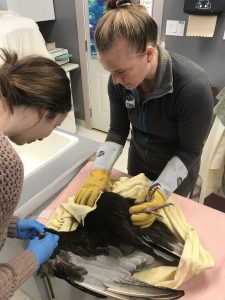
Many of us, though, are still rifle hunting with lead core bullets. Up until the 2019 season I would include myself in this, however after seeing what I saw at MARS I will absolutely never use lead bullets again. After entering the body of your target, bullets can fragment into thousands of microscopic particles that remain in gut piles and are then easily ingested by eagles. Because they have such a fast metabolism it effects them very quickly and is commonly fatal. Before becoming completely lethargic however, the eagles can struggle along for some time, while their reaction time becomes delayed. This is probably why we rescued so many birds after getting hit by cars, and come to find out after testing that many are also lead poisoned. I don’t think any of us would poison our national bird on purpose, and I for one already have my copper bullets ready for next season. I wish I could tell you that the tiny lead particles don’t effect them much, and they can pull through on their own if they just eat a small amount, but that is just not the case. Some of these birds come in completely defeated, unable to stand or hold their head up. They can not eat and become completely helpless, it’s no wonder they resort to rotting carcasses on the highway and then can’t avoid getting hit by cars. I took blood tests and saw the lead levels for myself. One bird even continued to leach lead out of her bones after several weeks of treatment. As hard as it was to watch them suffer though, I also saw their power and will to live. Eagles are incredibly strong both mentally and physically and I can not imagine causing that kind of pain in another living thing, especially when it is so easily preventable.
After coming home I can reflect on all the things that I learned at MARS, most of it being practical knowledge of animal anatomy and behavior, but I think my biggest take away is that by just educating my friends, and my community on these two issues we could really save a lot of lives! Working with MARS was a great experience but it would be great to live in a world where we don’t need facilities to take care of the wildlife that is injured due directly to humans.
Lastly, I will close out by saying that MARS is truly an incredible place, completely dedicated to these animals, and they are getting hit very hard by the covid disaster. They rely heavily on volunteers and donations to stay afloat, both of which they are lacking with more people staying home and less capacity to fund raise. In addition lead treatment is expensive, and baby season has arrived! They will likely be short on supplies to keep all the critters healthy and happy. So if you are interested in learning more or making a donation please visit; https://marswildliferescue.com/



